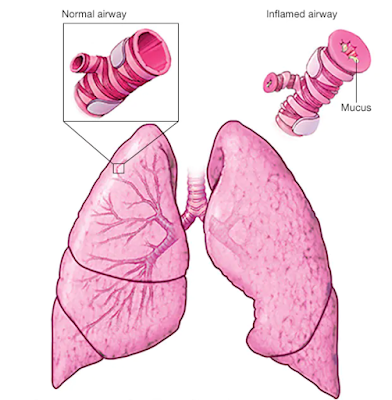Asthma: Understanding the Causes, Symptoms, and Treatment
What Causes Asthma?
Asthma is caused by a combination of genetic and environmental factors. People with a family history of asthma are more likely to develop the condition. Environmental factors such as pollution, tobacco smoke, and allergens can also trigger asthma symptoms. Other factors that can trigger asthma include exercise, stress, and respiratory infections.
Common Asthma Symptoms
The most common symptoms of asthma include wheezing, coughing, and shortness of breath. These symptoms can be mild or severe and may occur intermittently. Other symptoms of asthma may include chest tightness, rapid breathing, and difficulty speaking.
Diagnosis and Treatment Options
Asthma can be diagnosed through a physical exam, lung function tests, and allergy testing. Treatment options for asthma include inhaled medications such as bronchodilators and corticosteroids. These medications help to open up the airways and reduce inflammation. Other treatment options for asthma may include allergy shots, lifestyle changes, and avoiding triggers.
Advantages and Disadvantages of Asthma Medications
Advantages
- Relief of asthma symptoms
- Prevents asthma attacks
- Improves lung function
- Easy to use
Disadvantages
- Possible side effects such as headache, nausea, and dizziness
- May not work for everyone
- Expensive
- May interact with other medications
FAQs
Q: Can asthma be cured?
A: No, asthma cannot be cured, but it can be managed with proper treatment and lifestyle changes.
Q: Can allergies cause asthma?
A: Yes, allergies can trigger asthma symptoms in some people.
Q: Is it safe to exercise with asthma?
A: Yes, it is safe to exercise with asthma as long as it is properly managed with medication and other treatments.
Q: Can stress trigger asthma symptoms?
A: Yes, stress can trigger asthma symptoms in some people.
Conclusion
Asthma is a chronic respiratory condition that affects millions of people worldwide. It is caused by a combination of genetic and environmental factors and can be managed with proper treatment and lifestyle changes. If you think you may have asthma, it is important to speak with a healthcare professional for proper diagnosis and treatment.

